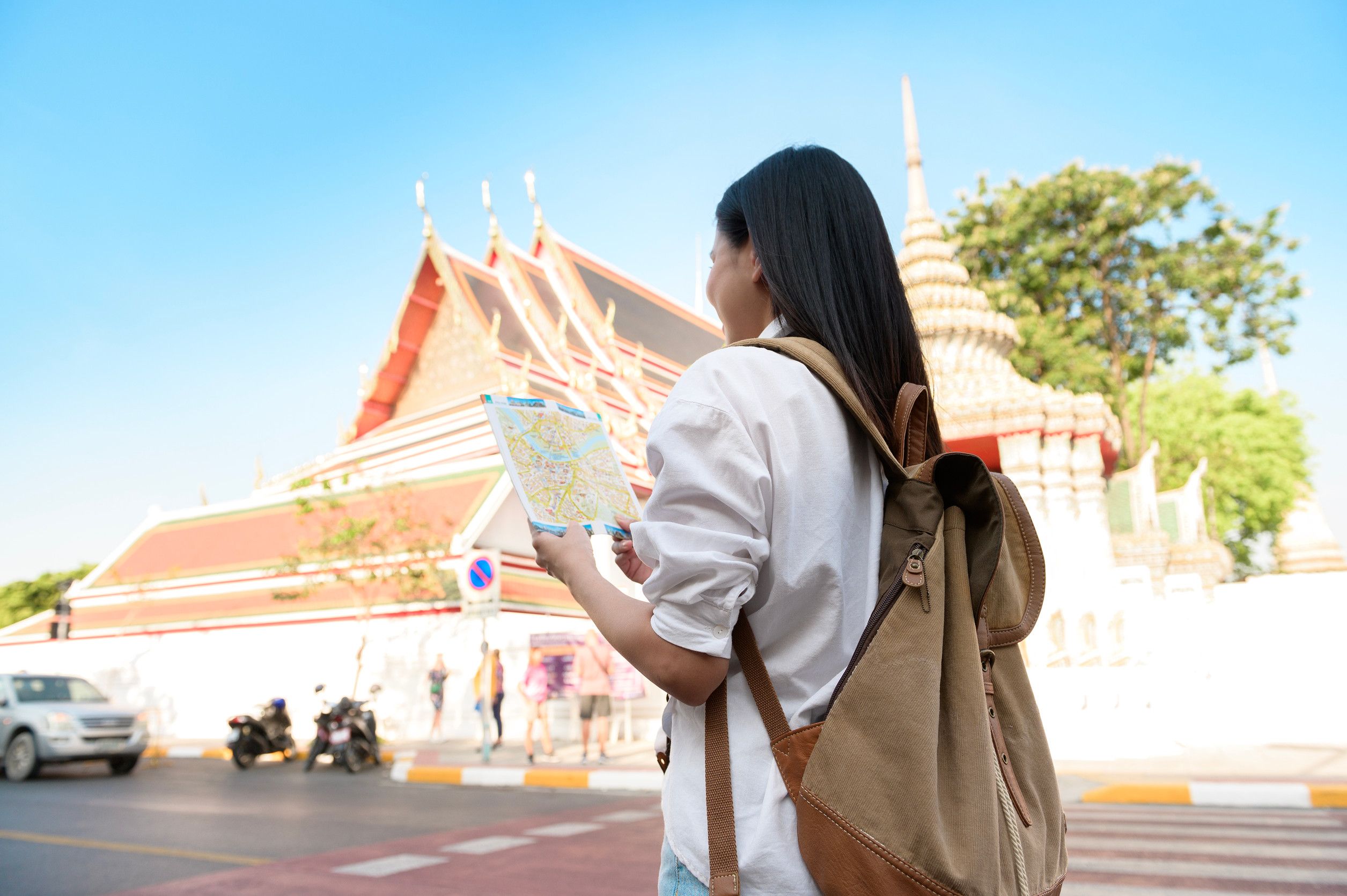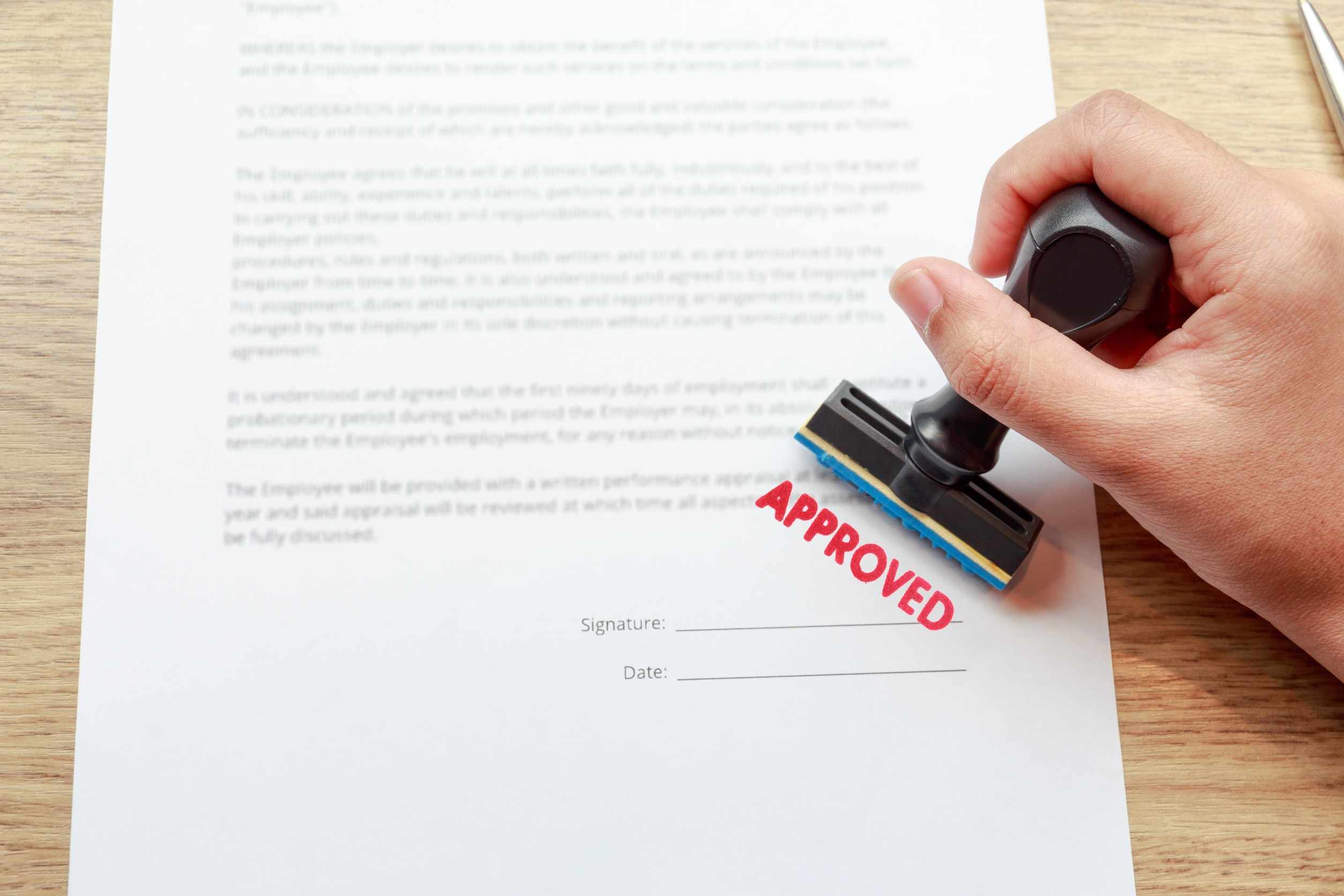
A Thailand eVisa extension is the process of extending the length of time that a foreign national is allowed to stay in Thailand beyond the expiration date of their initial eVisa. This is typically done by submitting an application to a local immigration office and providing the necessary documentation. The length of the extension and the specific requirements can vary depending on the type of eVisa and the individual's circumstances. An eVisa extension may be granted for reasons such as tourism, business, study, or retirement. It is important to note that having an eVisa extension does not guarantee the issuance of a work permit.
Different types of Thailand eVisas and their extensions:

Tourist eVisa
Thailand offers several types of tourists eVisas for visitors, depending on the length of stay and the purpose of travel. The most common type of tourist eVisa is the 60-day Tourist eVisa, which can be extended for an additional 30 days. This eVisa is issued to individuals who wish to visit Thailand for tourism, to visit family or friends, or for other non-business purposes. To apply for this eVisa, applicants must provide a valid passport, a completed eVisa application form, two passport-sized photographs, and proof of sufficient funds to cover their stay in Thailand. In addition, applicants may be required to provide a return or onward ticket and a hotel reservation or proof of accommodation.
Another type of tourist eVisa available for visitors is the 90-day Tourist eVisa, which can also be extended for an additional 30 days. This eVisa is issued to individuals who wish to stay in Thailand for a longer period of time, and the requirements for this eVisa are similar to the 60-day Tourist eVisa.
Another option is the Double-entry Tourist eVisa, which allows visitors to enter and exit the country twice during the validity of the eVisa. this eVisa is issued to individuals who wish to enter Thailand twice within a period of six months.
It's also possible to get a Multiple-entry Tourist eVisa, which allows visitors to enter and exit the country multiple times during the validity of the eVisa, up to a maximum of one year.
It's worth noting that even if you have a valid eVisa, all travelers must also have a valid passport with at least 6 months remaining before expiration to enter Thailand.
It's important to check with the nearest Thai embassy or consulate for the most up-to-date information and requirements for obtaining a tourist eVisa for Thailand, as well as the current COVID-19 travel restrictions which can change frequently.
1. Non-Immigrant eVisa
Thailand Non-Immigrant eVisas are issued to individuals who wish to enter Thailand for a specific purpose such as business, education, retirement, or long-term stay. The validity of the eVisa and the length of stay in Thailand depends on the type of eVisa that is issued. Non-Immigrant eVisas can be extended at the immigration office before the current eVisa expires, but it's important to note that these eVisas do not provide a path to permanent residency or citizenship in Thailand. Additionally, overstaying an eVisa can result in fines and/or deportation. It is therefore important to keep track of the expiration date of the eVisa and plan ahead for an extension.
There are several types of Non-Immigrant eVisas for Thailand, each with its own specific requirements and purposes. Some of the most common types include:
- Non-Immigrant B (Business) eVisa: This type of eVisa is for individuals who plan to conduct business activities in Thailand, such as attending meetings, setting up a company, or engaging in trade. It is valid for 90 days and can be extended for another 90 days at the immigration office.
- Non-Immigrant ED (Education) eVisa: This type of eVisa is for individuals who plan to study in Thailand, either at a university or a language school. It is valid for 90 days and can be extended for another 90 days at the immigration office.
- Non-Immigrant O (Retirement) eVisa: This type of eVisa is for individuals who are over the age of 50 and wish to retire in Thailand. It is valid for one year and can be extended annually at the immigration office.
- Non-Immigrant O-A (Long Stay) eVisa: The Non-Immigrant O-A (Long Stay) eVisa, also known as a Thailand Marriage Visa, is a type of visa that allows a foreign national to enter and stay in Thailand for a period of one year, with the option to extend for an additional year.
To apply for a Non-Immigrant O-A (Long Stay) eVisa, you will typically need to provide the following documents:
- A valid passport
- Proof of marriage to a Thai national
- Proof of income
- Proof of residence in Thailand
- A completed application form
To extend the Non-Immigrant O-A (Long Stay) eVisa, you will typically need to provide the following documents:
- A valid passport
- Proof of income
- Proof of residence in Thailand
- A completed application form
- Marriage certificate
- Copy of house registration of your Thai spouse
The process for extending a Non-Immigrant O-A (Long Stay) eVisa can take several weeks. It's important to apply for an extension well before your current visa expires to avoid any issues with overstaying.
It's important to note that the requirements and process for obtaining a Non-Immigrant O-A (Long Stay) eVisa and extension can change, so it's best to check with the Thai embassy or consulate in your home country for the most up-to-date information.
Non-Immigrant O-X (Elite) eVisa: The Non-Immigrant O-X (Elite) eVisa, also known as a Thailand Elite Visa, is a long-term multiple-entry visa that allows a foreign national to stay in Thailand for up to five years. The visa holder must renew it before it expires, and pay the annual fee to maintain the membership in the Elite program. The holder also needs to meet the same requirement as the initial application.
To apply for a Non-Immigrant O-X (Elite) eVisa extension, you will typically need to provide the following documents:
- A valid passport
- Proof of income or assets
- Proof of residence in Thailand
- Proof of Elite membership
- A completed application forms
The process for extending a Non-Immigrant O-X (Elite) eVisa can take several weeks. It's important to apply for an extension well before your current visa expires to avoid any issues with overstaying.
It's important to note that the requirements and process for obtaining a Non-Immigrant O-X (Elite) eVisa and extension can change, so it's best to check with the Thai embassy or consulate in your home country for the most up-to-date information.
2.Transit eVisa
Thailand Transit eVisa is issued to individuals who are passing through Thailand on their way to another destination.
There are two types of Transit eVisas for Thailand:
- Transit eVisa (Single Entry): This type of eVisa is for individuals who are passing through Thailand on their way to another destination. It is valid for 30 days, and cannot be extended.
- Transit eVisa (Multiple Entry): This type of eVisa is for individuals who will be passing through Thailand multiple times within a 90-day period. It is valid for 90 days, and cannot be extended.
Both types of Transit eVisas are issued to individuals who will not leave the airport transit area during their stay in Thailand. They are also required to have a valid onward ticket to another destination and sufficient funds for their stay in Thailand.
The process for applying for a Thailand Transit eVisa generally involves the following steps:
- Check the eligibility requirements: Make sure that you meet the requirements for a Thailand Transit eVisa, such as having a valid passport and a confirmed onward ticket to another destination.
- Gather required documents: Collect all the necessary documents, such as a passport-sized photo, a copy of your passport and a confirmed onward ticket to another destination.
- Fill out the application form: Complete the online application form, providing all the required information and uploading the necessary documents.
- Pay the visa fee: Pay the visa fee using a credit or debit card, or other accepted method of payment.
- Wait for the visa to be processed: The processing time for a Transit eVisa can vary, but it typically takes a few days. You will receive the visa via email once it is processed.
- Print the eVisa or present the eVisa on your mobile device: Print the eVisa or present the eVisa on your mobile device at the immigration counter upon arrival in Thailand.
It's important to note that the requirements and process for obtaining a Thailand Transit eVisa can change, so it's best to check with the Thai embassy or consulate in your home country for the most up-to-date information.
Frequently asked questions
You will typically need to provide proof of income, proof of residence, and a valid passport. Make sure that you have applied for an extension well before your visa is due to be expired because it can take a few days to over a week for the extension application to be processed given the high volume of applications received on a weekly basis.
The process can take anywhere from a few days to a few weeks, depending on the embassy or consulate processing your application. If you want to extend your visa, it would be best that you immediately apply for an extension well ahead in time of your visa expiration. If your visa expires without receiving the extension you may have to pay a fine or be penalized by the Thai foreign ministry.
Yes, you can apply for an eVisa extension while you are still in Thailand. Some countries do not allow travelers to extend their visas while staying in the country but Thailand authorities haven’t imposed any such limitations on foreign tourists.
The number of times a traveler can extend their visa would depend on the type of eVisa you have. Some eVisas can be extended multiple times, while others can only be extended once.
It depends on the specific circumstances and the Thai immigration rules and regulations. Kindly contact your nearest Thai embassy or consulate for further information on this aspect.

To help us improve